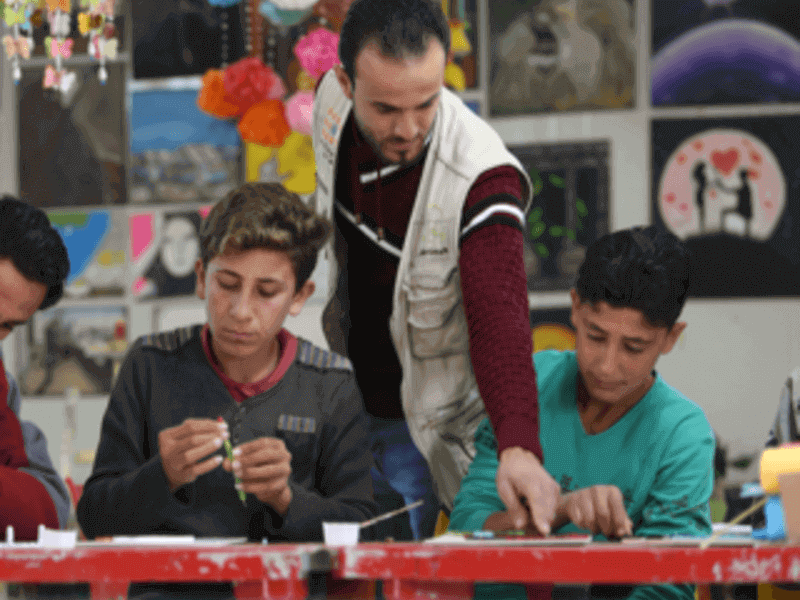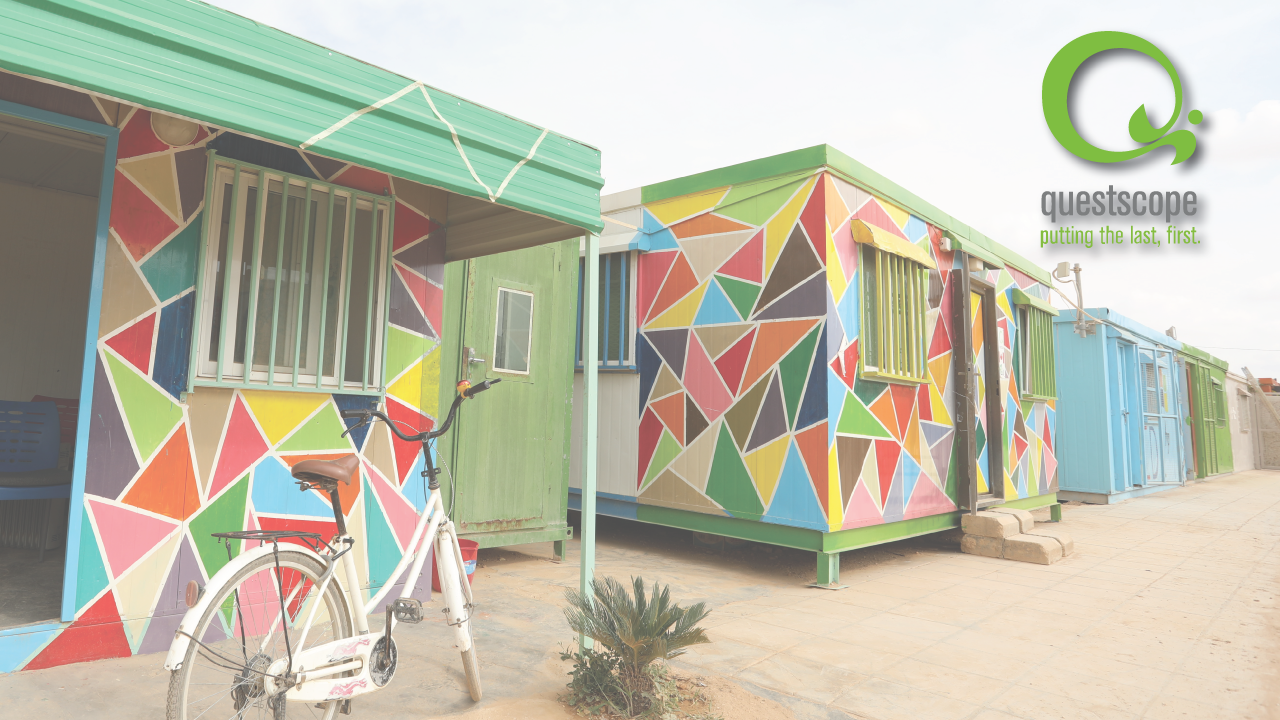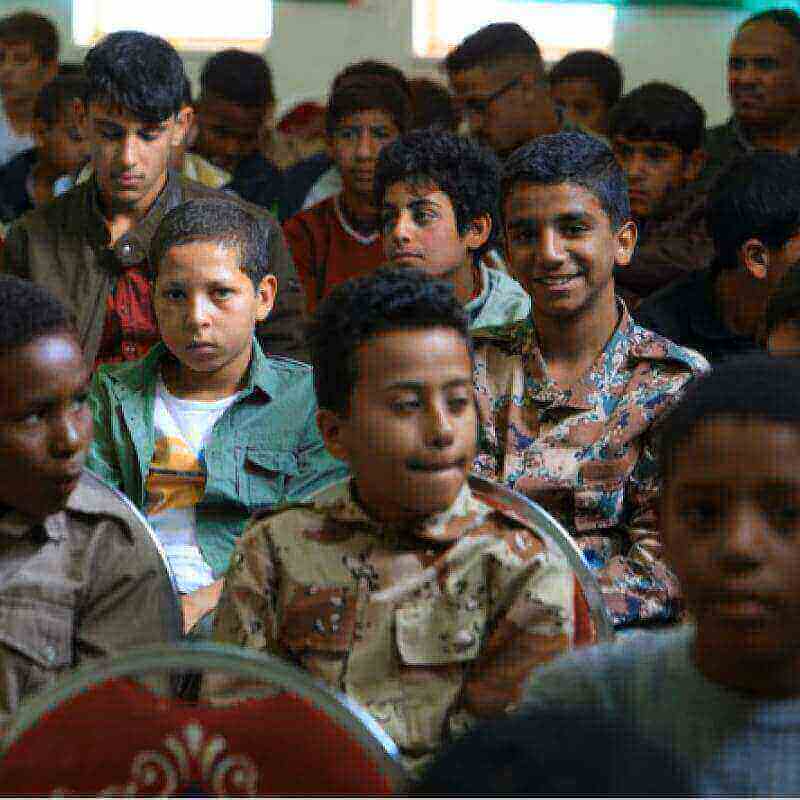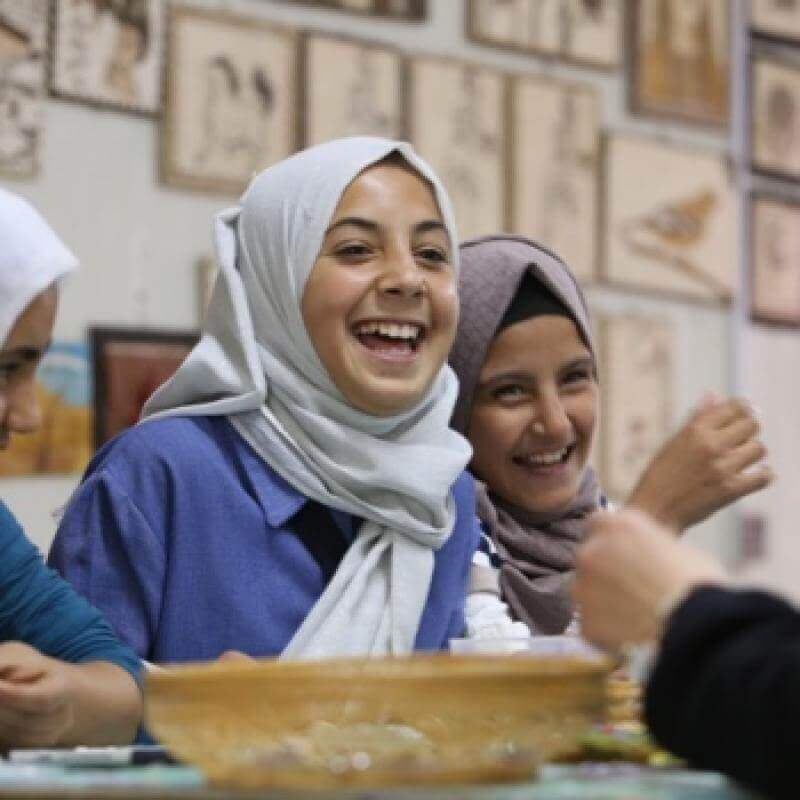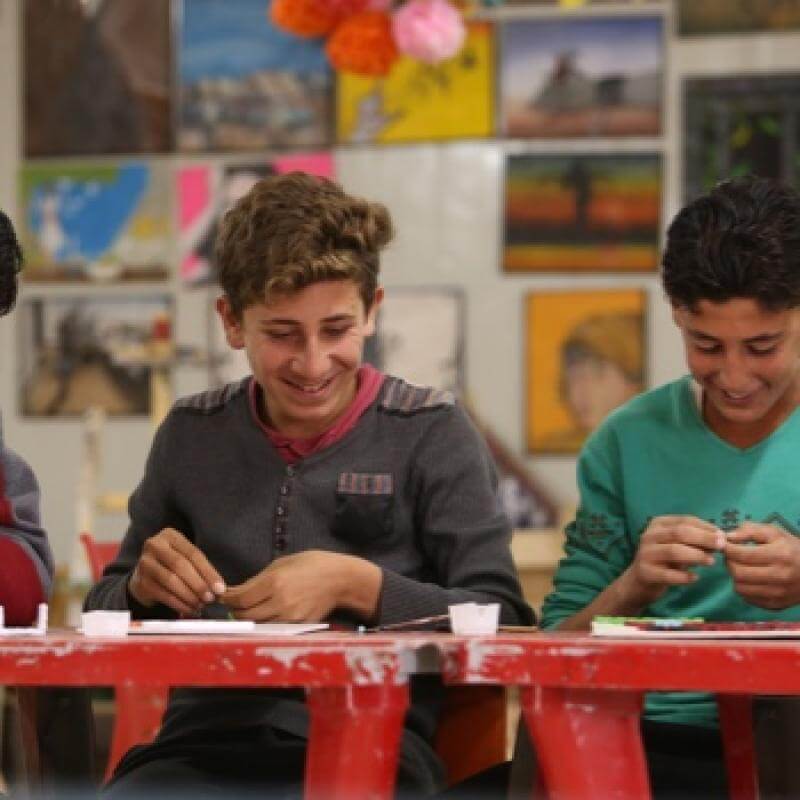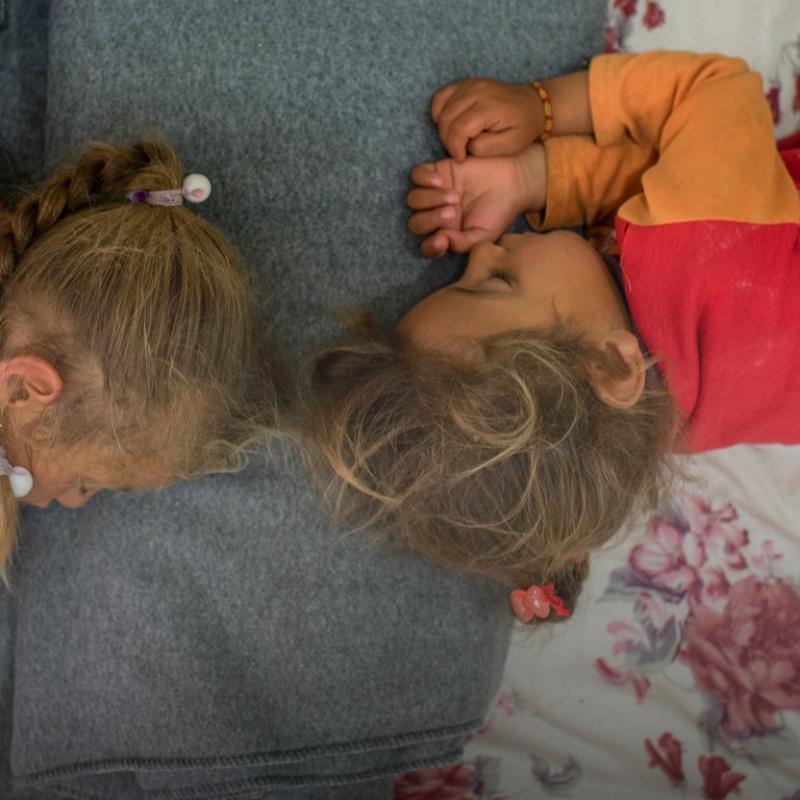The mentorship program aims to develop pro-social behavior among youth, support positive adult- youth relationships, and increase youths’ engagement and acceptance in their communities.
The program’s Theory of Change has three pillars: (1) activities that provide leadership and personal development opportunities for youth, as well as contribute to their social, emotional, physical, and cognitive well-being, (2) activities which target problematic or anti-social behaviors in youth, and (3) a structured personal relationship with a trained mentor from the local community.
The mentor-mentee relationship is carefully constructed with clearly defined roles for mentors and mentees, and is professionally guided by a case manager from the local community who monitors and provides guidance for each pair.
For mentors, the process of mentoring restores agency and confidence in their own capabilities. And mentees who were once labeled as high-risk grow into leaders and problem-solvers with friends and adults who believe in them.
Our pro-social approach to mentoring creates a triangle of mutual support between mentor, mentee, and case manager, and also a community support structure which helps reconstruct the ecosystem around each child.

